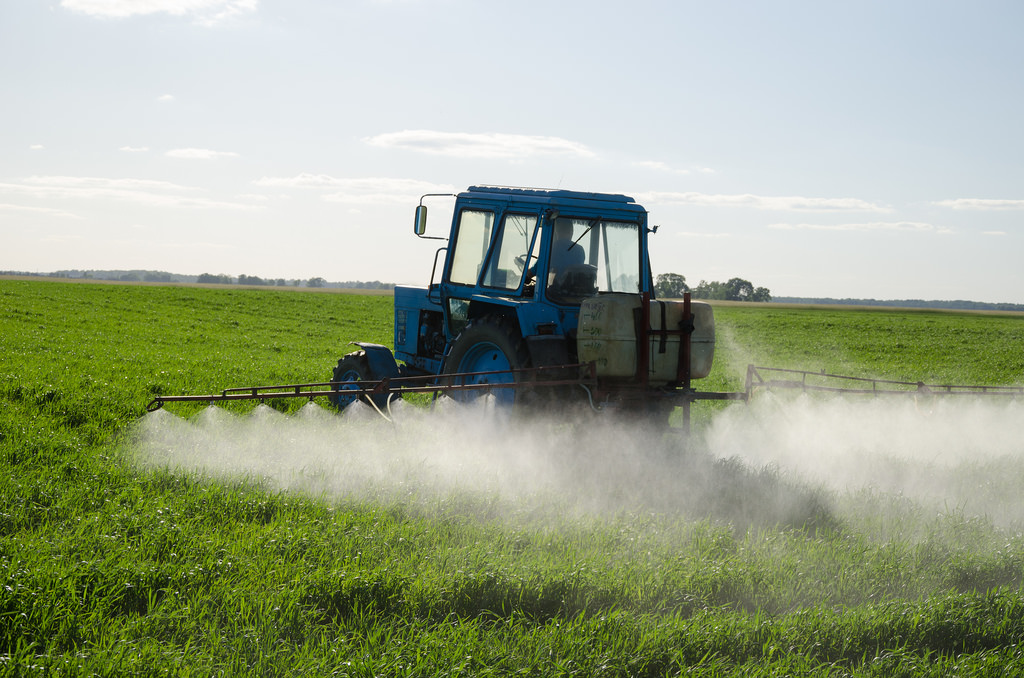No Pesticides, & yet Bountiful Cotton Crops – the Secret of Farmers in Haryana & Punjab
Scores of cotton farmers in Haryana and Punjab are practicing pesticide-free farming and have managed to escape the wrath of gruesome pests like whitefly, bollworm and mealy bugs while producing great harvests.

For those in the agricultural sector, the need to protect the crops from pest and insect attack is as crucial as the initial stages of crop growth and pertaining care.
And even if one sprays pesticides endless number of times, there will always be a small percentage in the harvest that would inevitably be infested with pests and be rendered useless.
Talking of pesticides, it is now common knowledge that these are not just harmful for the environment but also prove hazardous for human beings through repeated consumption of pesticide sprayed vegetables and fruits and poisoning.
Also, it has been observed that following years of extensive usage, the target pests have ended up developing immunity from the pesticides, which has sent pesticide developers in a scurry to concoct different mixtures for tackling the infestations.
Now contrary to common perception, not all insects attack the crops.

Just the way there is a distinction between good and bad bacteria, insects also play a vital role in crop development that remains largely unexplored or probably ignored in India.
Understanding this symbiotic mechanism, scores of cotton farmers in Haryana and Punjab are practicing pesticide-free farming and have managed to escape the wrath of gruesome pests like whitefly, bollworm and mealy bugs and produce great harvests.
It was Dr Surender Dalal, an agricultural scholar from Haryana, whose research and study understanding insect management helped spearhead the movement that has come to benefit hundreds of farmers in reaping healthy crops.
Hailing from a completely different pedagogy, the man spent years understanding and advocating against the use of pesticides and raising insect literacy amidst the farmers in the region.

The man is no more but the farmers who had learnt the art of maintaining insect equilibrium by letting benign insects take care of the pests have now founded a school, whose aim is to inculcate as many farmers about the perks of ditching the pesticides and increase insect literacy through on-field classes.
Dr Surender Dalal Kisan Khet school not only has farmers amidst its workforce but driven youngsters from completely different backgrounds as well, who have coupled up to raise awareness about the practice.
“At a time, we organize close to 20-25 classes in different villages across Punjab and Haryana. When we had started, there were close to a hundred farmers, but today we have over a thousand farmers across both the states who have ditched pesticides and managed to reap highly profitable yields,” says Gaurav Taneja, an engineer who now works as a non-teaching staff in a Government school and spends considerable time organizing classes for the farmers.
Gaurav also mentions that amidst the learners, a lot of farmers are women who have taken such interest in the programme that they have even composed songs that elucidate over the benefits of the benign insects.

The classes focus on the winter crop cycle, which is the ideal period for cotton crops, and stretch over a period of six months.
“The practicing farmers spend a considerable time calculating the number of insects in farms and compare the average with economy threshold level (ETL) followed by agricultural institutes worldwide. We also ensure that the number never crosses the ETL,” explains Gaurav.
Apart from insect management and literacy amidst the farmers, the school also helps illuminate the harmful farming practices that pose a serious threat to the ecology.

“The response has been quite positive. We found that the farmers who have quit using pesticides had managed to reap a benefit close to ₹1.8 crores. Witnessing the change for themselves, more farmers are beginning to take notice and willing to adopt the practice,” he proudly mentions.
Keeping the legacy of Dr Surender Dalal alive, the school hopes of reaching out to as many farmers as possible. Propagating responsible farming, the practice is not just a bid to produce better crops but also conserve insect ecology and the biosphere, as a result.
The school has released a booklet that answers queries related to cotton farming sans pesticides. Here’s the booklet.
To know more about the school and the pesticide-free farming, you can reach out to Gaurav at [email protected].
Like this story? Or have something to share?
Write to us: [email protected]
Connect with us on Facebook and Twitter.
NEW: Click here to get positive news on WhatsApp!
This story made me
- 97
- 121
- 89
- 167
Tell Us More
We bring stories straight from the heart of India, to inspire millions and create a wave of impact. Our positive movement is growing bigger everyday, and we would love for you to join it.
Please contribute whatever you can, every little penny helps our team in bringing you more stories that support dreams and spread hope.



















